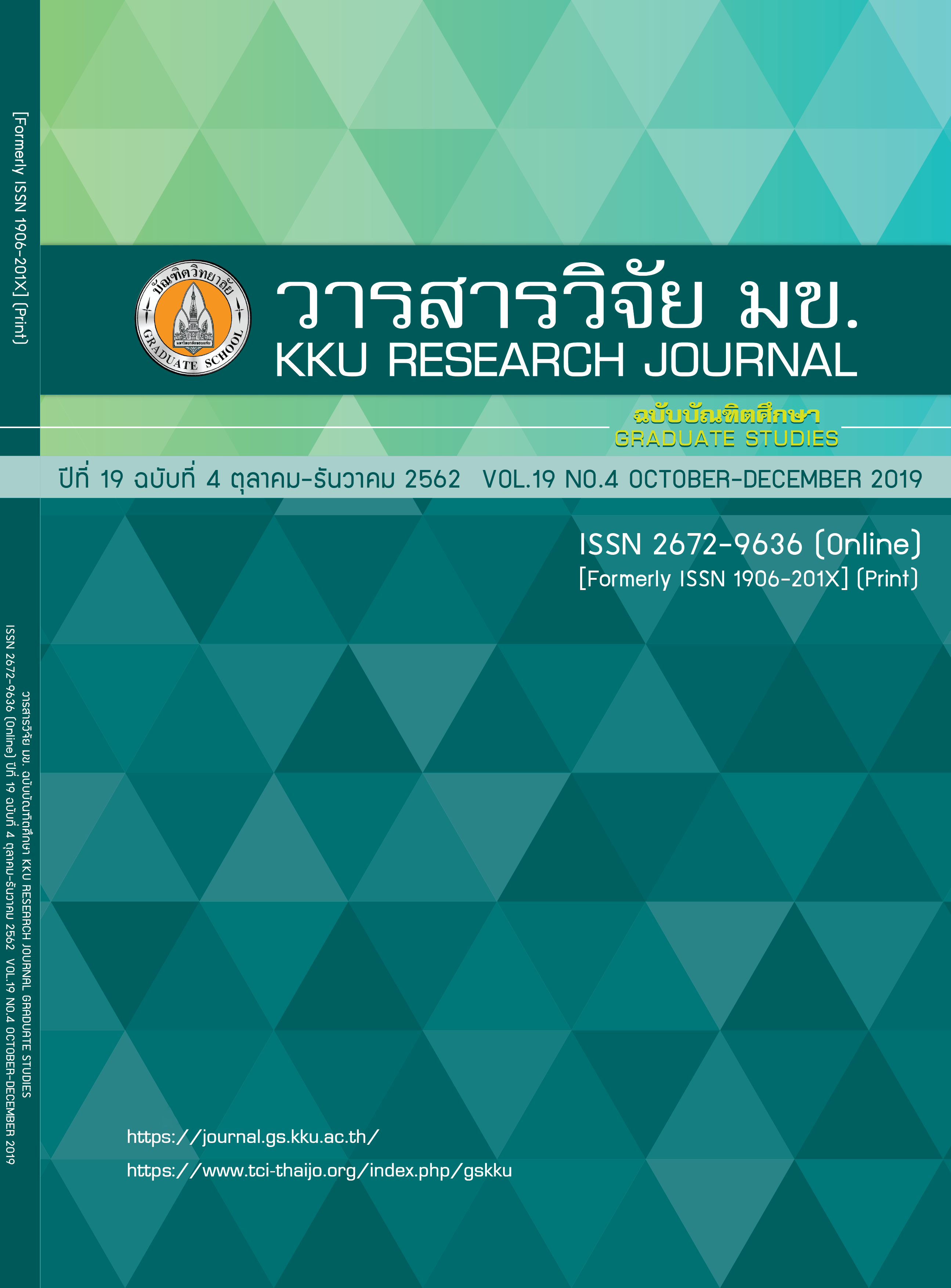Fixation of Heavy Metals in Activated Sludge from Municipal Wastewater Treatment System by Chicken Egg Shell for Rice Cultivation
Keywords:
Heavy metals, Chicken egg shell, SludgeAbstract
This research aims to utilize sludge from activated sludge municipal wastewater treatment system for rice cultivation without contamination of heavy metals. The twenty experimental treatments with 60 pots were designed by Randomized Complete Block Design. Three influenced factors were investigated, including ratio by wt. of soil to sludge (1:1, 2:1 and 1:2), ratio by wt. of sludge to chicken egg shell (CES) (10:1) and the amount of chemical fertilizer (CF) from 75% to 12.5% and control treatment (without using CF). The results revealed that the treatment which using soil to sludge and sludge to CES ratio at 1:2 and 10:1 respectively and 50% amount of CF gave the highest rice productivity. Moreover, in this treatment the heavy metals (Zn, Cu, Fe, Mn, Pb and Ni) in leachate from watering and in grain accumulation were analyzed. The results revealed that a trace level of heavy metals in leachate and grain were achieved and not over the standard. Therefore, utilization of CES, gave the potential on fixation heavy metals in sludge and unavailable to the leachate and productivity. In addition, utilization of sludge from AS treatment system could be reduced the use of CF and cost.
References
2. Office of Agricultural Economics. Important agricultural products and trends in 2018. Bangkok: Office of Agricultural Economics; 2017. 230 p. Thai.
3. Kaewsomboon W. Removal of lead from battery manufacturing wastewater by egg shell [PhD thesis]. Nakhon Pathom: Mahidol University; 2006. Thai.
4. Boonchoo P. Reduction of heavy metals leaching from sludge of activated sludge domestic wastewater treatment [PhD thesis]. Bangkok: Kasetsart University; 2016. Thai.
5. Department of Agriculture. Rice. Bangkok: Ministry of Agriculture and Cooperatives; 2004. 151 p. Thai.
6. Land Development Department. Soil improvement with organic matter. Bangkok: Soil and Water Conservation Division Land Development Department; 1997. 165 p. Thai.
7. Department of Agriculture. Organic fertilizer manual (academic issue). Bangkok: Ministry of Agriculture and Cooperatives; 2008. 116 p. Thai.
8. Pollution Control Department. Soil Quality Standards for the Living and Agriculture [Internet]. 2004 [cited 2017 Dec 20]. Available from: http://www.pcd.go.th/info_serv/reg_std_soil01.html#s1. Thai.
9. Singh RP, Agrawal M. Variations in heavy metal accumulation growth and yield of rice plants grown at different sewage sludge amendment rates. Journal of Ecotoxicology and Environmental Safety: 2010; 73: 632 - 641.
10. Royal Irrigation Department. Waste water Quality Standards [Internet]. 2011 [cited 2017 Dec 20]. Available from: http://www.pcd.go.th/info_serv/reg_std_water04.html#s5. Thai.
11. Ministry of Public Health. Heavy Metals Standards in food [Internet]. 1986 [cited 2017 Dec 20]. Available from: http://food.fda.moph.go.th/law/announ_moph1-150.php. Thai.



